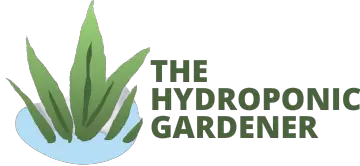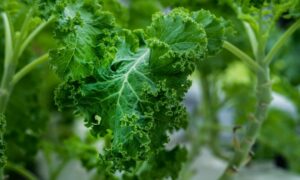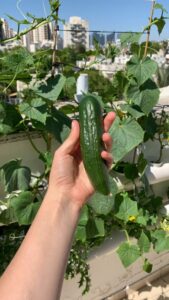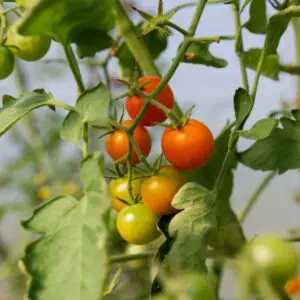Fresh and healthy produce is a cornerstone of a well-rounded diet. With the rise in popularity of hydroponic farming, many of us are wondering – are these hydroponic foods safe to eat? Are hydroponic vegetables healthy? It’s a valid concern, as we should always be mindful of what we put into our bodies. We’ll explore the safety of hydroponic foods and discuss any potential health risks associated with consuming them. So, grab a cup of tea, and let’s dive in!
Why Hydroponics is Safe for Production and Human Consumption
Hydroponically grown produce is safe to eat and packed with all the necessary nutrients. Hydroponic growing nutrients are formulated with specific ratios to provide plants with optimal nutrition for growth. They use synthetic or inorganic nutrients but are still tested and regulated for safety by government agencies. Here are a few reasons why hydroponic produce is safe to eat.
Regulated Nutrient Solutions
Regulated nutrient solutions are a key reason why hydroponics is safe for both production and human consumption. By carefully controlling the amount and type of nutrients that plants receive, hydroponic systems can produce healthy and nutritious crops without the use of harmful pesticides or chemicals.
Government agencies like the EPA and FDA regulate the composition of hydroponic nutrient solutions to ensure they meet safety standards and do not pose a risk to human health. This means you can confidently enjoy fresh, hydroponically grown produce, knowing it has been produced with regulated and safe nutrient solutions.
Reduced Water Usage
Reduced water usage is another key benefit of hydroponic farming, making it a safe and sustainable option for food production. Traditional soil-based farming methods can be water-intensive, leading to water scarcity and contamination. The plants are grown in a nutrient-rich solution with hydroponics, using up to 90% less water than traditional farming methods.
Additionally, hydroponic systems are designed to recycle water, reducing the water needed for crop production. This helps conserve water resources and reduces the risk of water contamination by fertilizers and pesticides. By choosing hydroponic produce, you make a safe and environmentally conscious choice supporting sustainable agriculture.
No Soil Contamination
Another safety advantage of hydroponic farming is that it eliminates the risks associated with soil contamination. Soils can be contaminated by pollutants, heavy metals, and harmful pathogens that threaten human health. Hydroponic systems, on the other hand, do not rely on soil. Instead, plants are grown in an inert medium or nutrient solution.
This means that there is no risk of soil-borne contaminants making their way into your food. You can enjoy fresh, healthy produce without worrying about soil contamination or exposure to harmful substances. By choosing hydroponic produce, you are making a smart and safe choice for you and your family.
High-Quality Produce
When it comes to produce, quality matters. Hydroponic farming provides a controlled environment for precise growing conditions and optimal nutrient delivery. This results in produce that is often of higher quality and free from defects. With hydroponics, you can expect fresh, flavorful, and nutritious produce that is visually appealing and long-lasting.
The controlled environment of hydroponic systems also reduces the risk of crop failures due to pests, diseases, or weather conditions. This means that you can enjoy a consistent supply of high-quality produce all year round. By choosing hydroponic produce, you are choosing safe, high-quality food that is both nutritious and delicious.
Vitamin & Mineral Content in Hydroponic Produce
Hydroponic produce has been shown to contain higher vitamin and mineral content than traditional soil-grown produce. Hydroponic farming allows for precise control over plant nutrient uptake, leading to produce that is packed with essential vitamins and minerals.
Some examples of important vitamins and minerals commonly found in hydroponic produce include:
- Calcium- Essential for bone health and muscle function.
- Iron- Necessary for producing hemoglobin, which carries oxygen throughout the body.
- Magnesium- Helps regulate muscle and nerve function, blood sugar levels, and blood pressure.
- Potassium- Important for maintaining heart health and regulating fluid balance.
- Vitamin C- An antioxidant that boosts the immune system and promotes healthy skin.
- Vitamin K- Necessary for blood clotting and bone health.
Which Hydroponic Vegetables Give You Vitamins and Minerals?
Growing vegetables in a hydroponic system can be a great way to produce fresh, healthy produce that is packed with vitamins and minerals. Hydroponic systems provide plants with a precisely balanced mix of nutrients, water, and oxygen, allowing them to grow quickly and produce nutritious crops.
Here are some examples of fresh vegetables that can be grown hydroponically and the vitamins and minerals they contain:
Here are some examples of hydroponically grown vegetables and the vitamins they contain:
Leafy greens
Hydroponic systems are well-suited for growing leafy greens like lettuce, spinach, and kale. These vegetables are high in vitamin K, which is important for blood clotting, and other vitamins and minerals such as calcium, iron, and folate.
Tomatoes
Hydroponic tomatoes are versatile and nutrient-rich vegetables that can be grown hydroponically. They contain vitamins A, C, and K and potassium and lycopene, a powerful antioxidant that may help prevent cancer.
Peppers
Hydroponic systems can also be used to grow peppers, which come in various shapes, colors, and flavors. Peppers are rich in vitamins C and A, potassium, and fiber.
Cucumbers
Another popular hydroponic crop is cucumbers, which are high in vitamin K and other important nutrients like potassium and magnesium. Cucumbers also have a high water content, making them a refreshing and hydrating addition to any meal.
Herbs
Hydroponic systems can also be used to grow various herbs, including basil, parsley, and cilantro. These herbs are rich in essential vitamins and minerals and antioxidants that may have health benefits.

Do Hydroponic Systems Use Chemicals to Enhance Plant Growth?
Hydroponics can be done without the use of harmful chemicals. Instead, hydroponic systems rely on carefully controlled nutrient solutions to give plants the necessary nutrients for growth. These solutions are formulated to meet specific plant requirements and do not contain any harmful pesticides or chemicals.
However, some hydroponic growers may use fertilizers, pesticides, and herbicides to enhance plant growth and control pests. It’s important to note that using chemicals in hydroponics is a personal choice, and many hydroponic growers prioritize organic and sustainable practices to produce safe and healthy crops.
Additionally, government agencies like the EPA and FDA regulate the use of chemicals in hydroponic farming to ensure they are safe for human consumption.
How to Choose Safe Hydroponic Chemicals
Choosing safe hydroponic chemicals is an important step in ensuring the safety of hydroponically grown produce. These systems rely on nutrient solutions to give plants the necessary minerals for growth. These solutions can contain various chemicals, including fertilizers, pesticides, and other additives. While these substances are necessary for plant growth and development, they can also pose a risk to human health if not used properly.
To choose safe hydroponic chemicals, it’s important to start by selecting products specifically formulated for hydroponic use. These products should be labeled as safe and appropriate for use, and should have clear instructions and warnings for safe handling and application.
When choosing fertilizers, look for products formulated to meet your plants’ specific nutrient requirements. Avoid using fertilizers containing heavy metals or other harmful substances, and follow the recommended dosage and application instructions.
When it comes to pesticides, choose products that are labeled as safe for use in hydroponic systems. Avoid using broad-spectrum pesticides that may harm beneficial insects or affect the taste and quality of your produce. Additionally, be sure to follow all safety guidelines for handling and applying pesticides, including wearing protective clothing and using proper ventilation.

How Safe are Hydroponic Plants Compared to Soil-Grown Plants?
If you’re wondering how safe hydroponic plants are compared to soil-grown plants, the answer is that they are just as safe, if not safer. In fact, hydroponic farming has several safety advantages over traditional soil-based farming methods.
First, hydroponic plants are grown in a controlled environment that is free from soil-borne contaminants like heavy metals, pesticides, and harmful pathogens. This means that hydroponic produce is less likely to contain harmful substances that can pose a risk to human health.
Another benefit of hydroponic farming is that it eliminates the need for harmful pesticides and herbicides. Without the use of these chemicals, hydroponic produce is free from harmful residues that can be found on conventionally grown produce. Additionally, hydroponic systems are designed to recycle water, reducing the risk of water contamination by fertilizers and pesticides.
Potential Health Risks Associated with Consuming Hydroponic Produce
Hydroponic produce is widely regarded as a safe and healthy food choice, but as with any type of food, potential health risks should be considered. In this section, we’ll take a look at some of the potential health risks associated with consuming hydroponic produce. While these risks are minimal, it’s important to be aware of them to make informed decisions about your food choices.
Some potential health risks associated with consuming hydroponic produce include:

Bacterial contamination
Bacterial contamination can occur in hydroponic systems when harmful bacteria are introduced into the growing environment. Bacteria can come from various sources, including contaminated water, soil, or equipment. Once present in the system, these bacteria can quickly multiply and spread to plants, potentially causing foodborne illness.
Common bacteria that can cause contamination include E. coli, Salmonella, and Listeria. If consumed, these bacteria can cause symptoms like nausea, vomiting, diarrhea, and fever.
Fortunately, the risk of bacterial contamination is generally low, and there are several steps that growers can take to reduce the risk of contamination. For example, using clean water sources and sterilizing equipment can help prevent the introduction of harmful bacteria into the system. Additionally, regular monitoring and testing of water and plant samples can help identify and address any potential issues before they become a problem.
Ultimately, by following best practices for hygiene and sanitation, hydroponic growers can minimize the risk of bacterial contamination and produce safe and healthy crops.
Heavy metal contamination
Heavy metal contamination is another potential risk associated with hydroponic farming. Hydroponic systems rely on nutrient solutions to give plants the necessary minerals for growth. These solutions can contain trace amounts of heavy metals like lead, arsenic, and cadmium.
While the levels of these heavy metals in hydroponic nutrient solutions are typically very low and not a cause for concern, long-term exposure to even small amounts of these substances can have negative health effects. For example, lead exposure can cause developmental delays in children, while arsenic exposure has been linked to increased cancer risk.
To minimize the risk of heavy metal contamination, monitoring nutrient solution quality regularly is important. This can be done through regular testing and analysis of nutrient solution samples. In addition, growers can use high-quality water sources and avoid using fertilizers or additives that may contain heavy metals.
Overall, heavy metal contamination in hydroponic systems is a potential risk easily managed by following the best nutrient solution maintenance and monitoring practices.
Regarding the safety of consuming hydroponic produce, rest assured that proper practices make them perfectly palatable. High-quality hydroponic nutrients, carefully formulated with essential minerals, are designed to give plants optimal nutrition. So, fear not, hydroponically grown goodies, nourished by safe and balanced nutrients, offer a flavorful feast while providing a bountiful harvest. Bon appétit!






